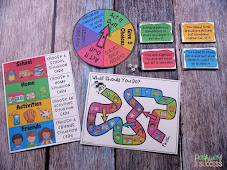Nurturing Social and Emotional Development through Play - Part 3
What is Social Development?
Social development involves learning how to interact with others. It is through play that children learn essential social skills like sharing, cooperating, and taking turns. These interactions provide a safe environment to practice social norms and develop strong interpersonal relationships.
What is Emotional Development?
Emotional development is another significant aspect of early childhood learning, and play plays a pivotal role in how children express and manage their emotions. It provides a safe space for them to explore feelings, build self-esteem, and develop resilience.
Key Points highlighting the importance of Social and Emotional Development
Toys that support Social and Emotional Development -
2. Board Games and Cooperative Games: Games that require teamwork promote social skills like cooperation, turn-taking, and problem-solving.
3. Art Supplies: Items like crayons, markers, and clay encourage self-expression and emotional expression, allowing children to communicate feelings through art.
4. Storybooks: Books with relatable characters and situations can facilitate discussions about emotions and different scenarios, promoting empathy and emotional understanding.
5. Puppets and Stuffed Animals: These can be used in storytelling or role-playing, helping children explore their emotions and develop empathy by projecting feelings onto the toys.
6. Building Blocks and Construction Kits: Engaging in collaborative building projects can enhance teamwork and negotiation skills, as children learn to share ideas and resources.
7. Emotional Literacy Games: Toys and cards that teach emotions (e.g., feeling flashcards) help children identify and discuss their own feelings and those of others.
8. Musical Instruments: Instruments promote sharing, collaboration, and can serve as an outlet for emotional expression through music.
9. Outdoor and Physical Play Equipment: Items like swings, slides, and climbing structures encourage cooperative play and help children learn to take turns and support one another.
10. Sensory Toys: Items designed for sensory exploration can provide calming experiences and help children manage their emotions in different situations.
These toys not only foster social skills but also aid children in understanding and managing their emotions, making them invaluable tools in early childhood development. When selecting toys, consider those that encourage interaction, creativity, and imaginative play to best support these developmental goals.
In summary, play is a fundamental vehicle for social-emotional development in early childhood, allowing children to explore relationships, build confidence, and navigate complex feelings. Facilitating opportunities for play in early learning environments can significantly enhance these developmental outcomes.







.jpg)
.jpg)




Comments
Post a Comment